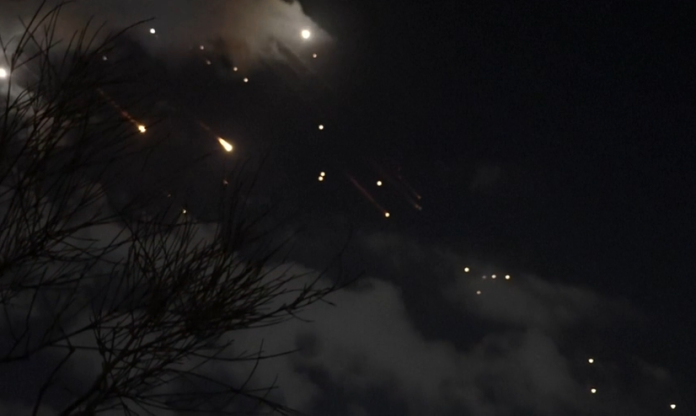– Yusra Firdaus
Tehran launched ballistic missiles, which follow trajectories outside or near the Earth’s atmosphere, in a recent strike. These missiles had previously been used against Israel earlier this year. This time, Tehran also deployed hypersonic missiles, reportedly capable of reaching speeds up to 10,000 mph. Although the timing and specifics of the attack were unclear beforehand, it came as no surprise.
For months, global powers have been warning of a potential “regional escalation” resulting from Israel’s war in Gaza, which has claimed the lives of 41,000 Palestinians. The conflict began after Hamas fighters launched an attack on October 7, 2023, killing approximately 1,200 Israelis. In response, Israel now faces accusations of genocide at the International Court of Justice.
The Israel Defense Forces (IDF) have since expanded their military operations to Lebanon, launching extensive airstrikes. Lebanon is home to Hezbollah, Iran’s key regional ally, which has been firing rockets into northern Israel in retaliation for the events in Gaza.
Last week, thousands of pagers and walkie-talkie devices belonging to Hezbollah members exploded across Lebanon, resulting in the deaths of scores and injuring thousands, including civilians. On Friday, Israel reportedly assassinated Hezbollah’s leader, Hassan Nasrallah. In a separate incident in July, Hamas political leader Ismail Haniyeh was killed in Tehran, with Israel suspected of being behind the attack.
Israeli airstrikes have caused widespread devastation in southern Beirut and villages in southern Lebanon, displacing over one million people, around one-fifth of Lebanon’s population.
While the U.S. has expressed concern about the escalation, it continues to back Israel both diplomatically, by advocating for its position at institutions like the United Nations, and materially, supplying Israel with bombs and weapons used in these attacks.
The full extent of the damage is still being assessed. The IDF reported that several airbases were hit, and images from Israelis showed craters in central and southern parts of the country. Eight Israeli soldiers are reported to have been killed in the Iran’s missile attacks, while authorities in the occupied West Bank confirmed one fatality.
Iran claimed that its missiles targeted military installations, though at least one projectile struck an Israeli school. In response, U.S. President Joe Biden called Iran’s attack “ineffective.”
While Iran has announced the conclusion of its strikes, it stated it has more missiles ready to launch if Israel retaliates. Israeli Prime Minister Benjamin Netanyahu condemned Tehran’s actions as a “grave mistake” and warned that “it will pay the price.”




